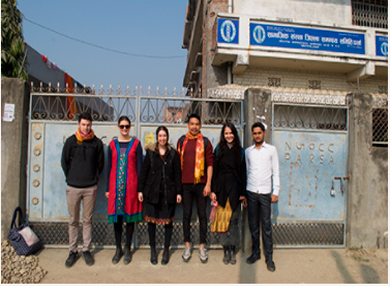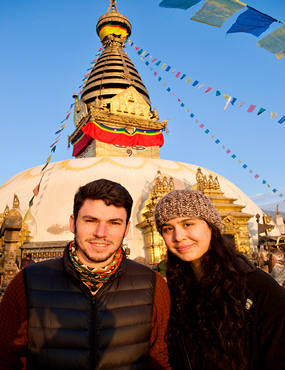Leveraging technology to create social impact in Nepal
Restless Development (Nepal) focuses on empowering youth across more than 40 districts in Nepal.
Restless Development (Nepal) is an international non-government organisation that has a global vision of “young people taking a leadership role in addressing the most urgent issues facing their countries and the world, supported fully by their governments, their communities, businesses and civil society institutions”.
Their work focuses on seven key programs.
- Building a strong youth sector and engaging in meaningful participation.
- Capacity building of young people and adolescents.
- Keeping girls in school.
- Training youth in vocational skills and engaging them in livelihood opportunities.
- Training youth in finance and social skills.
- Ending child marriage through peer education and community engagement.
- Sexual and reproductive health rights and gender-based violence.
- The Abolition of Chhaupadi (isolation of women during menstruation).

PACE activities
Restless Development Nepal often shape activities to suit the skills and interests of students. Activities suit students who are:
- proactive and adaptable
- seeking a community development experience
Law
Students undertook desk research into international legal frameworks relating to the prevention of gender-based violence, laws and policies at a national level within Nepal and what was happening at a local level in terms of implementation. By working with schools and communities to end gender-based violence the group helped to engage students, teachers and communities and developed service maps by building upon evidence and information gathered through a combination of community-based and desk-based legal research.
Students conducted research on existing LGBTIQ+ and Sexual Reproductive Health policy, focusing on legal frameworks and implementation gaps as well as undertaking a capacity assessment on service providers within gender and sexual minorities space, and how they are serving the community.
Finance
Students supported the finance team to prepare field offices for an internal Restless Development audit, conducted internal audit activities and implemented recommendations.
Business/ Marketing
Students developed important program documents such as our Youth Engagement Guideline, Youth Power Stories, Alumni Engagement Guideline.
Student experiences - Mohra Fazel

Q: What do you study and where did you go on your PACE International activity?
A: I studied a Bachelor of Laws with a Bachelor of Arts (Public Policy, Law and Governance). I travelled to Nepal for my activity, and I worked with the organisation Restless Development who empower youth to overcome global challenges.
Q: What was your role or project at your host organisation?
A: In Nepal, Restless Development linked us with a local non-governmental organisation, who were involved with the ‘Zero Tolerance’ initiative, which aims to reduce the prevalence of gender-based violence in school settings around Nepal. Our overarching task was to develop a report for the local partner and Restless Development, outlining how the ‘Zero Tolerance’ initiative had been implemented and received locally.
In my role, I conducted legal research and focused on government policy in Nepal concerning gender-based violence, issues surrounding access to justice and the awareness of legal mechanisms and processes available to local communities.
I also had the opportunity to interview local community stakeholders such as members of the District Education Office, the Women and Children’s Office and the District Bar Association to discuss their roles in reducing gender-based violence locally.
Q: What attracted you to the PACE International program?
A: I was attracted to the idea of placing myself out of my comfort zone - I wanted what I considered to be my limited perspective, to be challenged. As I am passionate about access to justice, it was important that I broadened my perspective and understood the complexities of achieving justice for communities across different cultural contexts. During law school, we were introduced to the theoretical concept of ‘justice’ in the classroom, but PACE International provided a window into understanding how justice is accessed, understood and applied on the ground across different groups globally.
Q: What advice would you give a student who is thinking of applying for a PACE International activity?
A: PACE International is a unique opportunity to learn and contribute to an international partner organisation. You are provided with an invaluable opportunity to listen to the people who are locally involved and familiar with the issues that you will be working on. I think you should embrace the learning experience and allow for your perspective to be challenged, as it develops a more comprehensive and informed understanding of the issues you will be involved with and which are relevant to your degree.
Q: What was the best part of your PACE International experience?
A: Developing meaningful connections with the people I met from the organisations I worked with! I really treasure the feeling that the world has become a little smaller through the connections made across the globe. I’m still in touch with my colleagues from Nepal on social media and follow their commitments towards creating more inclusive and just local communities in Nepal.
Also, experiencing sunrise at Swayambhunath Stupa (Monkey Temple) in Kathmandu, one of Nepal’s oldest and holiest religious sites, which sits atop a hill and gives you a panoramic view of Kathmandu city from above, is an incredibly unique cultural experience that I won’t forget for many years to come!